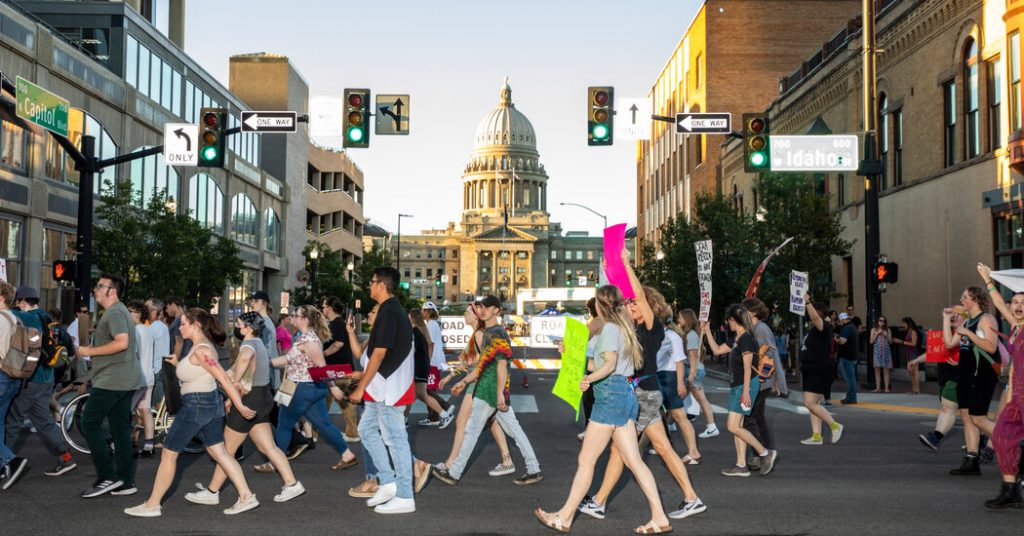After the Supreme Court dismantled a constitutional right to abortion in 2022, a new series of court battles began as the issue of access was returned to the states. The Biden administration announced it would protect access to abortion under emergency situations through a federal law, which led to conservative states pushing back, resulting in dueling lawsuits in Texas and Idaho. This created a circuit split among federal courts and intensified pressure on the Supreme Court to settle whether the Emergency Medical Treatment and Labor Act pre-empts state abortion bans. This law shields doctors who perform emergency abortions to stabilize the health of pregnant women.
Following the Department of Health and Human Services issuing guidance to hospitals, including those in states with abortion bans, stating that pregnant women must be allowed to receive abortions in emergency rooms if doctors believed it was necessary for stabilizing treatment, Texas’ state attorney general, Ken Paxton, sued the Biden administration. Paxton accused the administration of defying the Supreme Court’s ruling by interpreting the federal law in a way that would “force abortions” in Texas hospitals. He argued that the Emergency Medical Treatment and Labor Act “does not guarantee access to abortion” and that it considers an emergency medical condition to be one that threatens the life of the unborn child.
In August 2022, Judge James Wesley Hendrix ruled in favor of Texas, stating that the federal guidance on interpreting the act went “well beyond” the text of the law. The U.S. Court of Appeals for the Fifth Circuit upheld Judge Hendrix’s ruling. In Idaho, a near-total ban on abortions went into effect after Roe v. Wade was overturned. The Biden administration sued Idaho, stating that the federal law should supersede the state law when there is a direct conflict. Federal Judge B. Lynn Winmill temporarily blocked part of Idaho’s ban, ruling that the state could not penalize doctors for acting to protect the health of endangered mothers.
However, in the fall of 2023, a three-judge panel from the U.S. Court of Appeals for the Ninth Circuit put that ruling on hold and reinstated the ban. But an 11-member panel of the appeals court ultimately blocked Idaho’s law temporarily as the appeal continued. Idaho then asked the Supreme Court to intervene, leading to the court reinstating the ban and agreeing to hear the case. The ongoing legal battles between states, the federal government, and the Supreme Court have intensified as the interpretation and application of the Emergency Medical Treatment and Labor Act in relation to abortion access continue to be debated and litigated.


